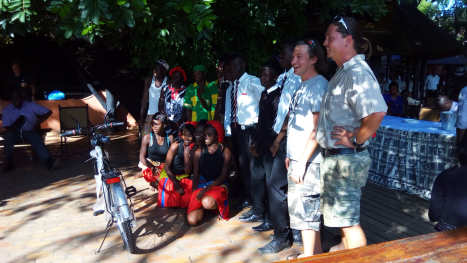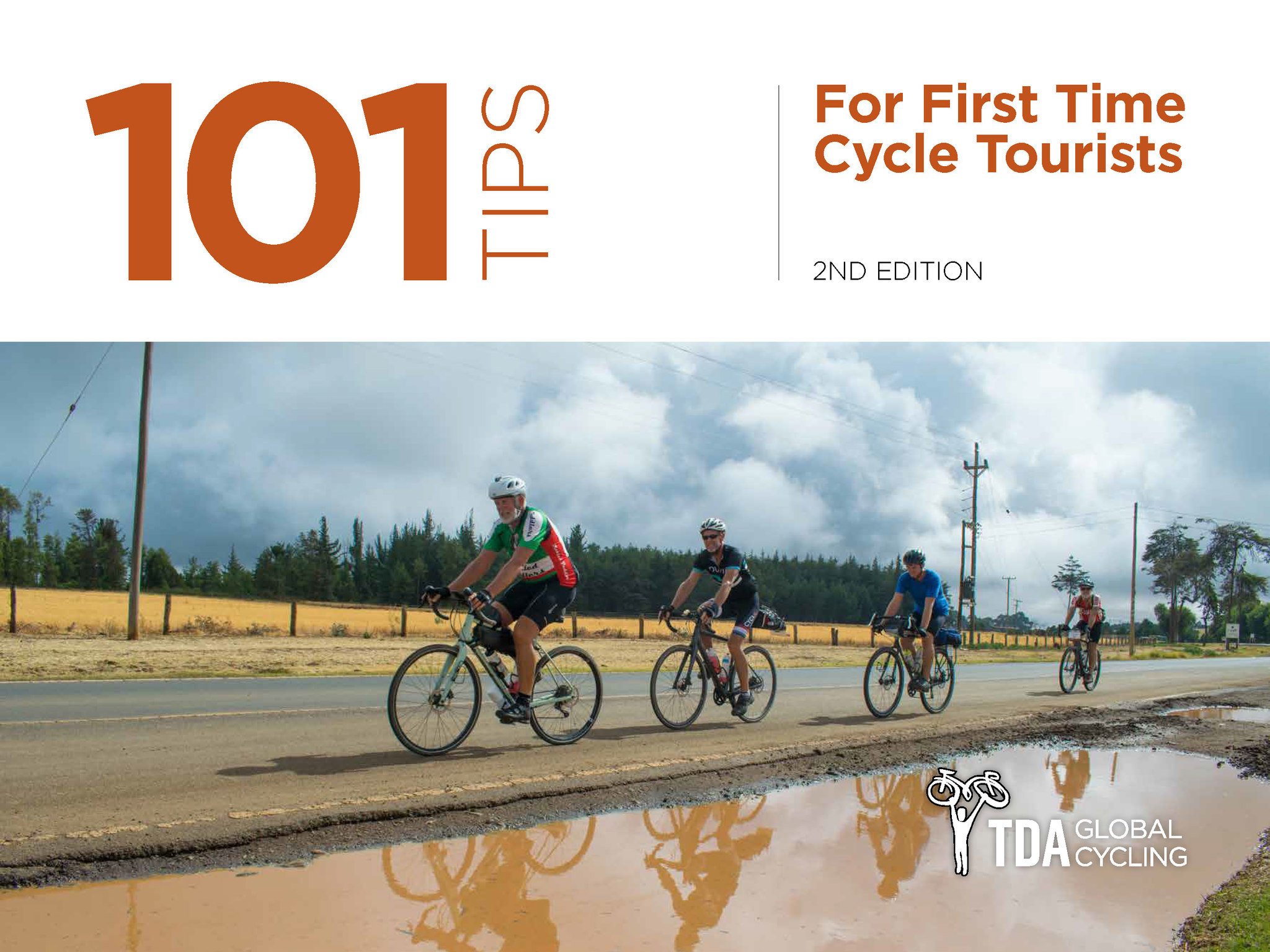Blog
The Tour D’Afrique from a physiologist’s perspective
– An excerpt from “Superbodies” by Dr. Greg Wells (TDA 2003)
The importance of maintaining the fitness of my heart, lungs and blood came crashing home to me when I was finishing my PhD and starting my post–grad school “vacation.” While completing my thesis on high-performance sports training, I sat at my desk, typing at my computer for hours each day. To fuel this intense work, I ate very well. Actually, for four months straight I ate whatever provided an immediate burst of energy. I gained quite a bit of fat as a result and, by the time my thesis was completed, had put on a good 35 pounds. Nothing very high performance about that! I was not a physically happy person, but I was quite thrilled that I had completed my doctorate. Let’s call this my mind-body disconnect.
I realized immediately that I was not healthy and that drastic action was required. So I got on a plane in February, when the temperature in Toronto was –20°c, and flew to Egypt to join the first-ever Tour D’Afrique, an 11,000-kilometre bicycle race from Cairo to Capetown, South Africa. I was late joining the tour, so I took a short flight south to Khartoum, Sudan, and met up with the cyclists to start my journey through Africa. On the first day in Sudan, in the middle of the Sahara Desert, it was 50°c. Good thing we had to ride only 120 kilometres that day. (Important note: This practice was neither smart nor safe!)
When you are a physiologist and you exercise, your mind goes crazy thinking about all the events occurring in your body: Why are you breathing so hard? Why do your muscles burn? What training zone are you in at that heart rate? Why are you dizzy when riding? (Not a good thing.) I could feel the sweat and water being sucked from my skin by the dry air. My heart was working overtime to pump life-giving oxygen from my lungs to my leg muscles while at the same time driving blood to the skin in an attempt to take the heat away from the working muscles and organs and let evaporation do its job.
As the bicycle journey continued and my fitness began improving—I was starting to lose some fat and able to ride well—we found ourselves cycling in the mountains of Ethiopia. Riding up the hills, we would find the local children running next to us and talking, “Where are you go?” “Pen for study?” “Ferengie! Ferengie! [Foreigner! Foreigner!].” Meanwhile, I was hyperventilating in the thin air, wondering how these kids could run so fast and not be out of breath. My physiologist’s mind was making calculations: How dense would the hemoglobin concentration in the blood of these kids have to be to carry oxygen from the low-pressure air of the mountains in order to fuel their muscles? I was thinking that they must have blood like syrup. Simply put, the constant exposure to altitude must stimulate the youngsters’ bodies to produce more red blood cells that help carry more oxygen to their muscles and organs.
Despite teaching a course on environmental physiology, I had an experience with exercise in the heat and heat exhaustion. As I was cycling out of Khartoum and the temperature was 50°c (120°F). To add to my wonderful first day of riding through the desert, I missed seeing the turnoff into our camp, and went an extra 50 kilometres, reaching a total of 170 kilometres for my first day of rid- ing. The next day I drank 16 litres of water during the eight hours of cycling, and did not urinate once. I was covered in salt from all the evaporated sweat that came off my body during the day. About two-thirds of the way into the 120-kilometre day, I began to feel truly awful and almost started hallucinating. My muscles actually stopped and refused to pedal. I’ve done some pretty tough sporting events, and I swam competitively at a reasonably high level, so I know how to push myself. But there was nothing I could do to move my bike forward. My friend Andrew Griffin, who was on the trip with me and who is in the Guinness Book of World Records for the fastest human-powered crossing of Africa, pulled up next to me while I was resting on the side of the gravel trail. He said that I looked positively grey and that we should probably stop cycling for the day.
We rested for an hour under the only tree we could find, and eventually I cooled off enough to be able to function again. In hindsight, it was clear that I was well on my way to heat exhaustion and possibly even heat- stroke. This was embarrassing, given that I had just finished a PhD in exercise physiology. This experience was a major life learning point for me—it’s not just knowledge that counts, but knowing how to apply and manage your knowledge in the real world. I didn’t get heat exhaustion again on that trip.
Greg Wells, PhD, is an Assistant Professor at the Faculty of Kinesiology and in the Department of Anaesthesia at the University of Toronto. He is also an Associate Scientist in Physiology & Experimental Medicine at The Hospital for Sick Children. Wells works with Olympic and elite athletes around the world and is the sports science and sport medicine analyst for CTV’s Olympic broadcasts. The Gemini-winning Superbodies segments were seen by millions around the world during the Vancouver Olympic Games. He is the author of Superbodies: Peak Performance Secrets from the World’s Best Athletes (available at www.amazon.ca). Greg regularly appears on CTV’s Canada AM and TSN’s Off the Record. Visit his website at www.drgregwells.com and follow him on Twitter @drgregwells. Dr. Wells participated in the inaugural Tour D’Afrique in 2003.
 REGISTER NOW
REGISTER NOW




1 Comment for "The Tour D’Afrique from a physiologist’s perspective"
Excellent….informative and humorous. I listened to a podcast by Mark Sutcliffe, heard that Greg had done the tour so was thrilled to find this post.